Venezuela crisis: Facts, FAQs, and how to help
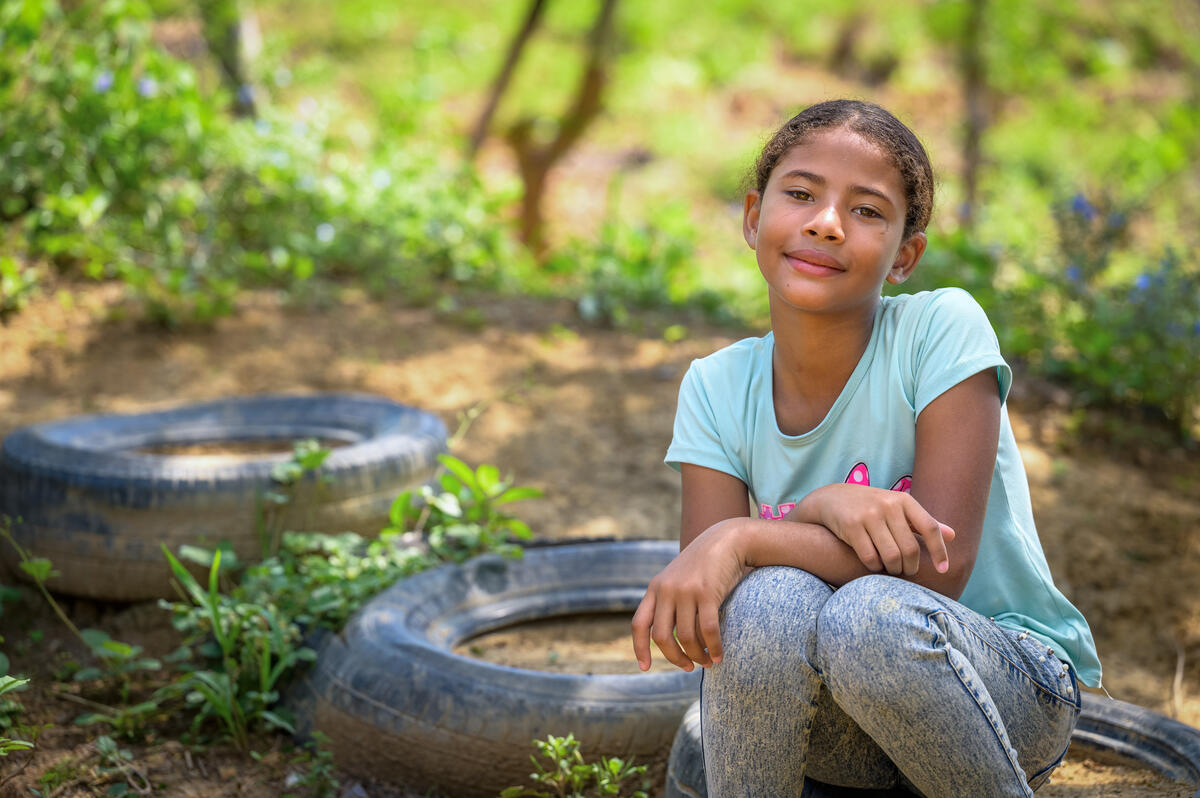
Once among Latin America’s most prosperous nations, Venezuela has taken a drastic turn within the last decade. The country faces significant challenges due to political unrest, economic decline, and acute shortages of vital resources such as food, medicine, and electricity. This crisis has driven millions of people from Venezuela in search of food, better living conditions, and work opportunities beyond its borders.
The ongoing influx of Venezuelans to neighboring countries has placed a strain on social services, particularly in areas near the borders of Brazil, Colombia, Ecuador, and Peru.
Venezuela crisis: Facts, FAQs, and how you can help
Fast facts: Venezuela crisis
- Driven by ongoing turmoil, as of June 2024, over 7.7 million Venezuelans have left the country since 2014.
- Approximately 6.1 million are refugees residing outside of the country, mostly in Latin America, according to the United Nations Refugee Agency’s (UNHCR) Global Trends report.
- As of December 2023, 7.6 million people still residing in Venezuela required humanitarian assistance, according to USAID.
- The number of people experiencing crisis-level or worse food insecurity in Venezuela is expected to rise from 2 million in January 2024 to 3.5 million in July 2024.
- Colombia hosts the highest concentration of Venezuelan migrants — 2.9 million.
- The migration of children and adolescents through the dangerous Darién Gap in Panama has increased by 40% so far in 2024, according to the U.N. Children’s Fund (UNICEF).
Why is Venezuela currently in crisis?
Years of hyperinflation, rampant corruption, economic mismanagement, and a lack of economic diversification have taken a heavy toll on Venezuela. The country has been impacted by social and political unrest, leading to protests and violence that contribute to a pervasive sense of national insecurity. Once among the wealthiest nations in Latin America, Venezuela relied heavily on its vast oil reserves for revenue. However, a significant decline in oil prices and production, coupled with inadequate government investments, resulted in the collapse of the national economy. The government’s ineffective response to these challenges and failure to provide essential social services have exacerbated the crisis, leaving Venezuelans struggling with dire shortages of food, medicine, and other necessities.
How many people from Venezuela are currently displaced?
As of June 2024, more than 7.7 million people have left Venezuela, making it one of the largest external displacement crises in the world. Much like the Syrian refugee crisis, which remains the largest, the Venezuelan crisis has affected numerous lives.
Where are Venezuelans going?
Most Venezuelans have sought refuge in neighboring countries. Of the millions of people who have left Venezuela, the majority (approximately 6.1 million) have chosen to remain in Latin America and the Caribbean. Notably, Colombia has become the primary destination, hosting over 2.9 million refugees and migrants from Venezuela. Other significant destinations include Peru (1 million), Ecuador (471,400), and Chile (435,800).
A dangerous exodus
As the crisis unfolds, people are taking dangerous journeys to reach their intended destinations. These treks are frequently taken on foot, and some even attempt risky sea voyages to nearby Caribbean islands.
The lack of proper documentation makes refugees and migrants vulnerable to exploitation and victimization at the hands of smugglers and traffickers who take advantage of their desperate situation.
Jasmina and her family, including her children pictured above, embarked on a years-long journey from Venezuela in search of better living conditions. They traveled hundreds of miles through the roads of Venezuela, Colombia, Ecuador, and Peru, enduring nights of sleeping on the streets with no permanent home. Their struggles included crossing the Darién Gap, a dangerous jungle route.
“You just feel like you’re going to die; you just feel like you’re going to stay there. You can only pray and ask God to give you strength from where there is none because your legs are getting weaker, you feel like you can’t breathe, that you are going to faint, that you are going to stay there and nobody, absolutely nobody, is going to be able to help you, because you are in the middle of nowhere, in the middle of a jungle,” remembers Jasmina. Despite the immense difficulties, they pressed on.
After four years of migrating from country to country, Jasmina made the difficult choice to return to Venezuela. She expressed heartfelt gratitude for World Vision’s support, which provided her family with the transportation they needed to return to their community. World Vision’s help eased their journey home and left a lasting impact on Jasmina, who was assured that her family was not alone during the most challenging times of their migration.
“… Without that help, the return would have been very difficult, we were already tired and without strength. With World Vision, the burden was significantly reduced,” she says.
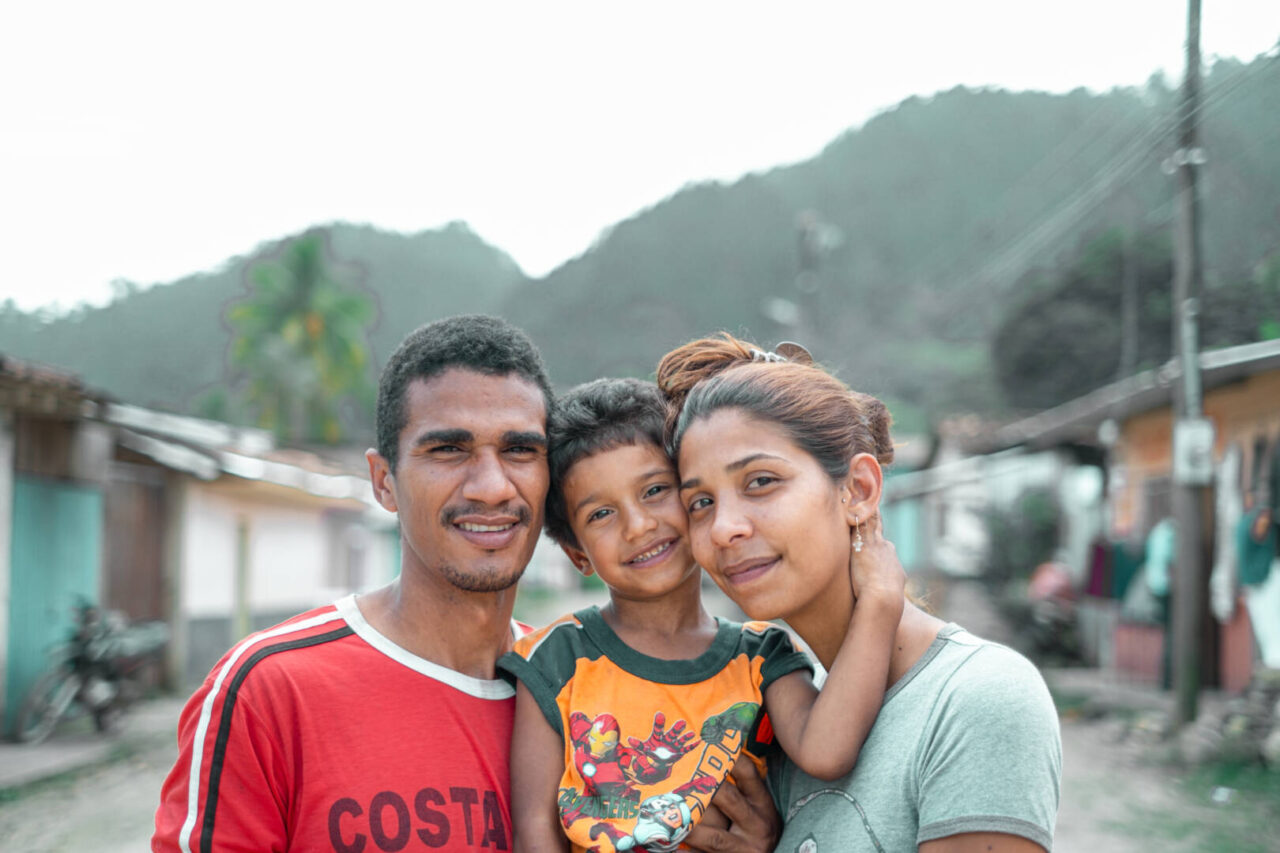
What’s the difference between a migrant, a refugee, and an asylum-seeker?
The Venezuela crisis has sparked a significant movement of people, the majority of whom are classified as migrants. A migrant is someone who moves from their usual place of residence, whether internally or internationally, regardless of their legal status or reasons for moving.
By contrast, a refugee is a person who flees their home country due to persecution, conflict, violence, or other circumstances that place them in need of international protection. Nearly 212,000 people who have left Venezuela are considered refugees, as they fled the country to escape violence.
Additionally, according to the UNHCR, as of mid-2023, nearly 1.2 million Venezuelans were asylum-seekers. An asylum-seeker is someone who applies for refugee status in another country and is awaiting a decision on their claim for protection.
How is the Venezuela crisis affecting children?
Children are among the most vulnerable in this crisis. As food stocks dwindle, they face a greater risk of hunger and starvation. According to World Vision staff leading the crisis response, Venezuelan migration is currently the biggest humanitarian crisis in Latin America.
Children and adolescents on the move, especially girls and those who are separated from their families or unaccompanied, are exposed to significant protection risks, including trafficking, sexual exploitation, and abuse. Consequently, their mental health and psychosocial well-being are under threat, with reported cases of sexual violence tripling and the risk of suicide increasing among this vulnerable population in the last three years, according to UNICEF.
Another alarming trend has emerged: More children than ever are embarking on hazardous routes to reach their intended destinations. Over 30,000 children crossed the Darién Gap in the first four months of 2024, a 40% increase from last year. UNICEF reports that in 2024, 800,000 people, including 160,000 minors, are expected to cross the jungle as part of the ongoing migration crisis, requiring humanitarian assistance.
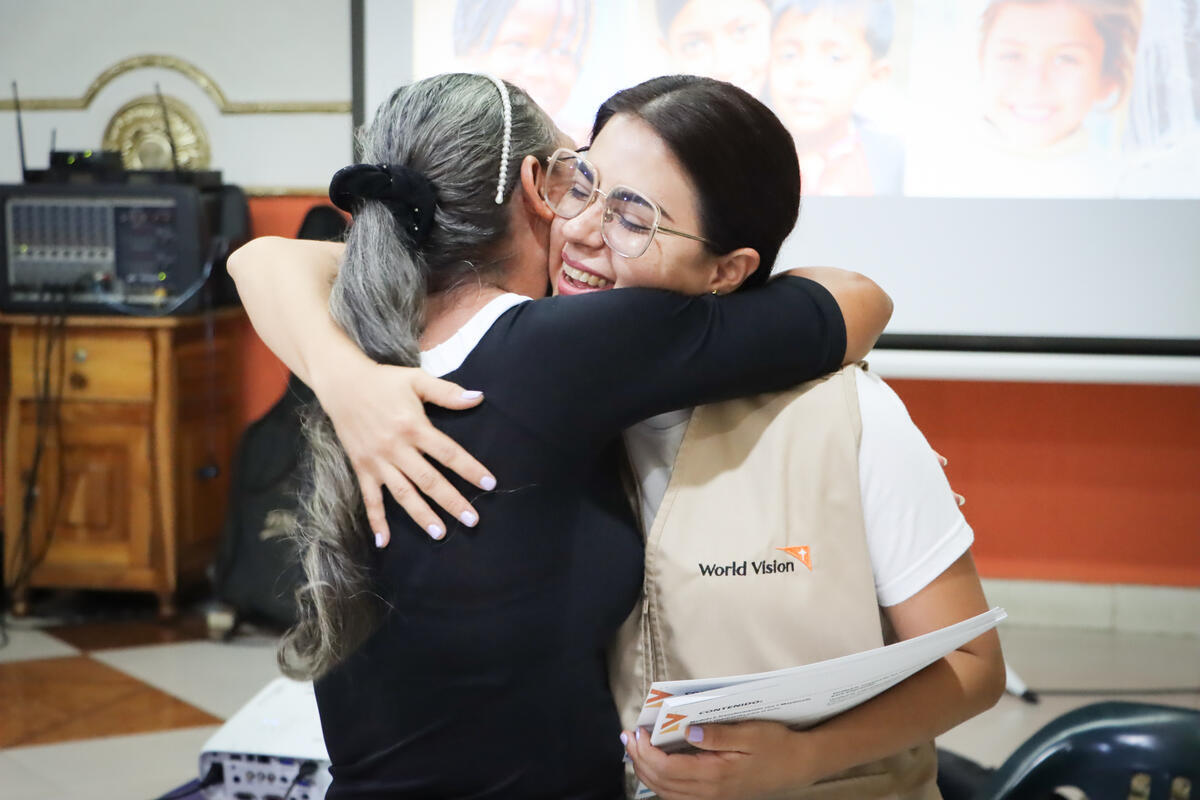
How is World Vision responding to the Venezuela crisis?
Since 2019, World Vision has actively responded to the Venezuela crisis through our program “Hope Without Borders.” Between 2019 and March 2024, we reached more than 2.1 million through programs focused on child protection, education, food security, access to clean water, sanitation, and hygiene (WASH), and livelihoods in Bolivia, Brazil, Chile, Colombia, Ecuador, Peru, and Venezuela.
We’re also facilitating economic integration through employment support and training and mental health services for people impacted by the crisis. Collaboration with faith-based organizations is vital and enables us to offer safe spaces, skills training, and language classes. World Vision’s cash transfers and food aid have become an essential lifeline for thousands of people.
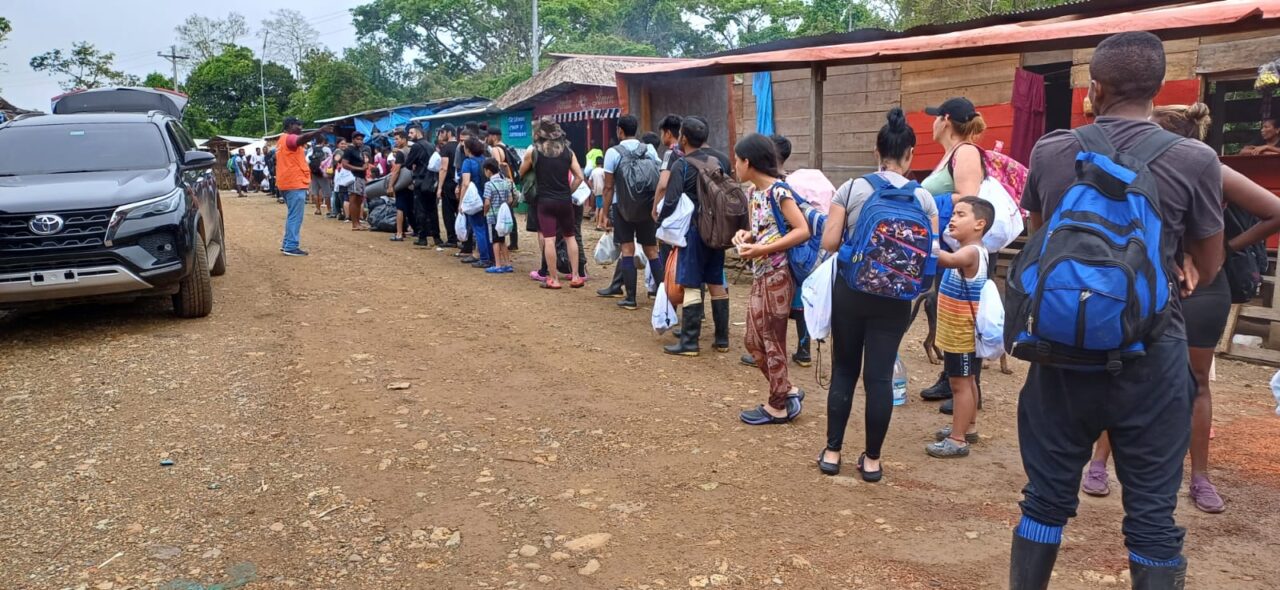
In Panama, World Vision — in partnership with Start Network — has launched “Migration Response Panama” to help migrants, especially those with children, traversing the Darién Gap. The operation provides vital aid, including food, hygiene kits, and baby supplies, at the borders, while helping with the integration of vulnerable migrants.
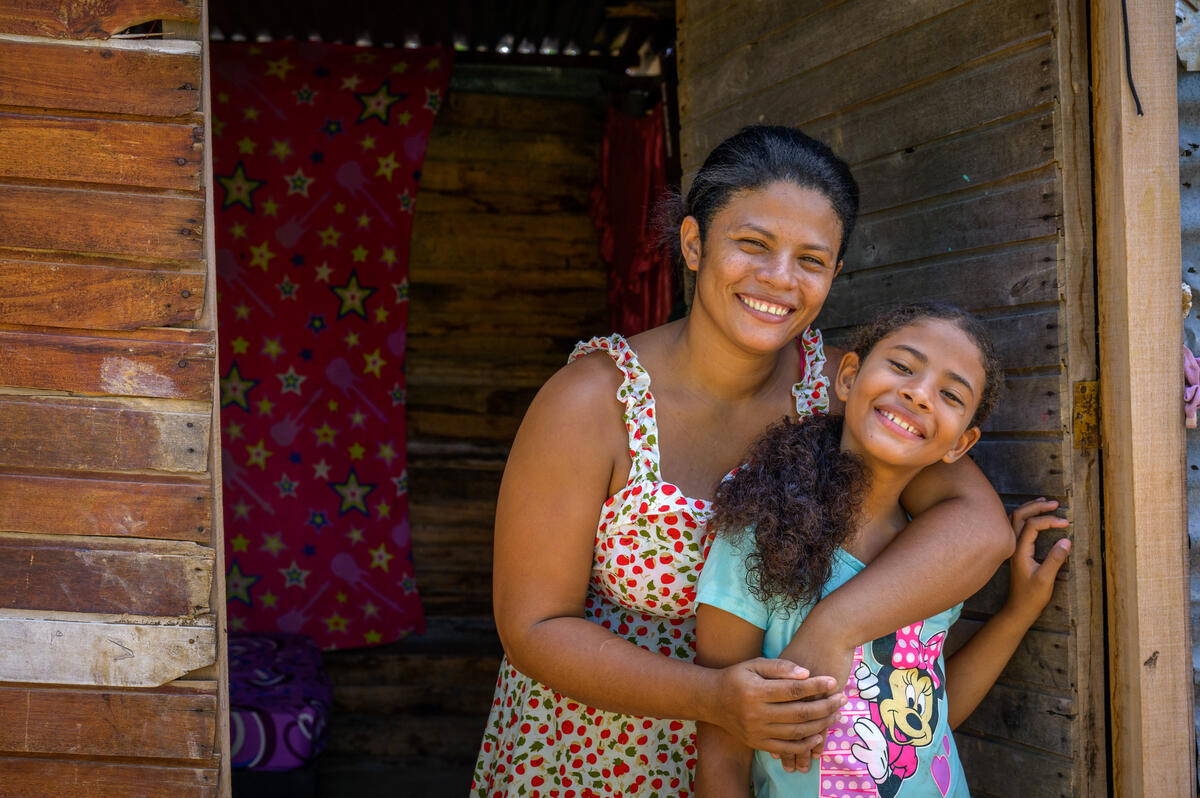
In Colombia, we’re coming alongside children like Sofia and her mother, Mariangel, pictured above, to help build hope by taking care of their immediate needs and supporting their long-term aspirations for a better life.
We first met Sofia in 2019 when she was just 5 years old.
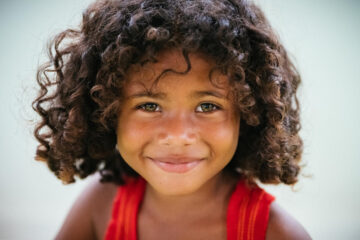
Sofia and her family arrived in Colombia in 2018, navigating perilous routes and settling in El Talento, a settlement for Colombian returnees and Venezuela migrants. Since 2020, World Vision has been providing crucial support to children like Sofia in El Talento.
Sofia thrived in the UNICEF and World Vision Learning Circles, an educational program aimed at helping students catch up in their studies. During one session, Sofia expressed her dream of a home. With building materials from World Vision and community support, Sofia’s family managed to build a house for the seven of them, including her parents and four siblings. From our partner organizations, the family also received food vouchers from the World Food Programme and money vouchers from the Ven Esperanza program, which they used for additional materials.
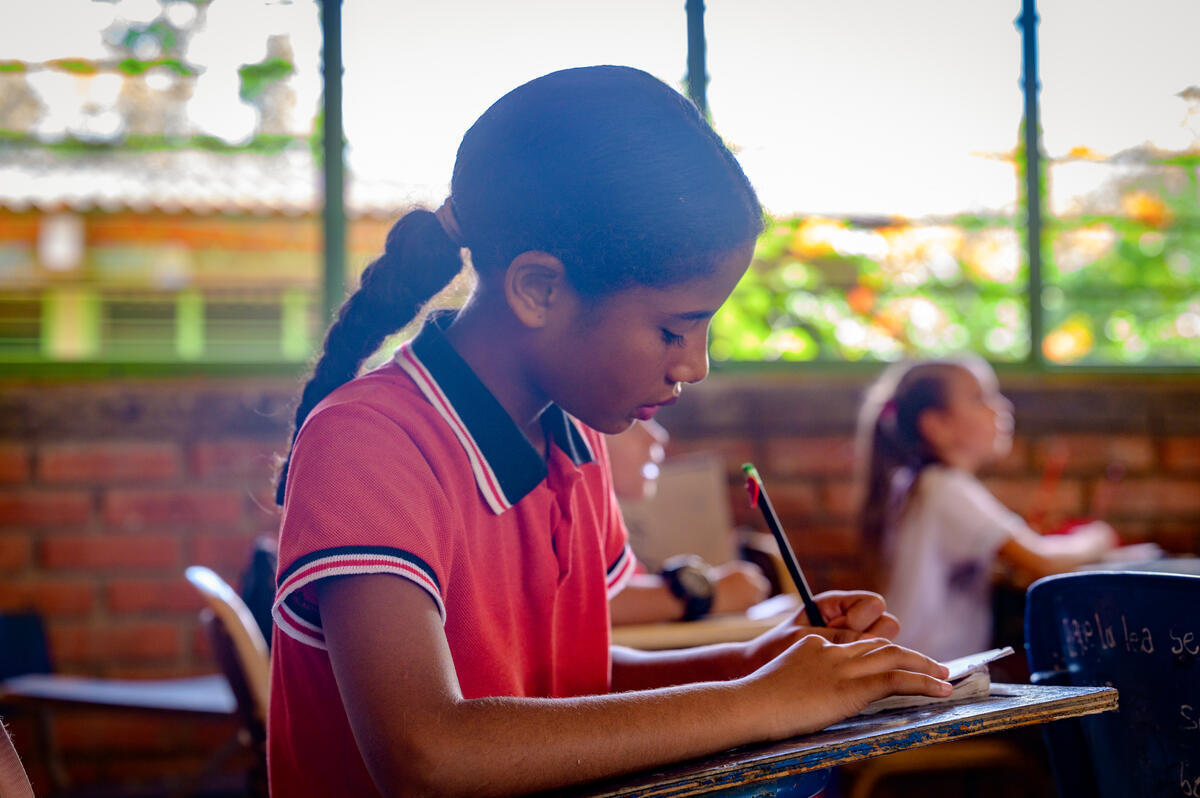
Despite losing their house in a landslide, Sofia and her family remain resilient. They now live in a rented two-room wooden house. Their determination and hope for a better future drive them forward.
How can I help children and families affected by the Venezuela crisis?
You can support Venezuelans by remembering them in prayer and helping meet their needs.
- Pray: Join us in praying for all those affected by the crisis in Venezuela.
- Give to World Vision’s Disaster Relief Fund to address the needs of Venezuelans and other people facing crises.
Laura Reinhardt of World Vision’s U.S. staff contributed to this article.
Related
What’s at stake for American culture with Trump’s Kennedy Center…
In her two decades as a human rights lawyer, working on issues in more than 25 countries, Hadar Harris says she is alarmed by what she's witnessing on U.S. soil
Denmark lost 52 soldiers fighting alongside the US. Now it…
Nick BeakeEurope correspondentBBCAll his adult life, Colonel Soren Knudsen stepped forward when his country called. And when its allies did.He fought alongside
As Trump upends foreign policy, Berkeley scholar sees irreparable damage…
Last week’s Oval Office blowup with Ukrainian President Volodymyr Zelensky exemplified what many foreign policy experts have long feared: that th
Trump creates a task force for the North American 2026…
President Donald Trump creates a task force to prepare for the 2026 W











